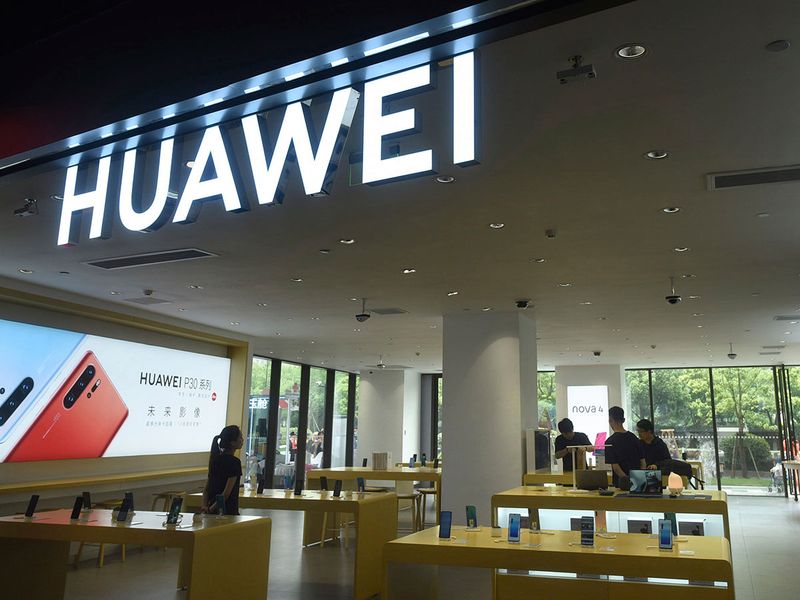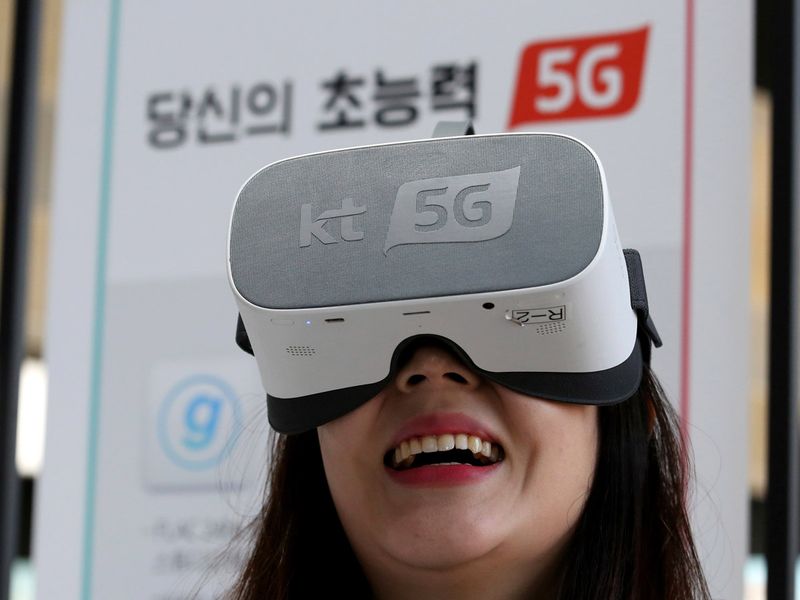
Telecommunications are never more relevant than they are at times of crisis. And the crisis we are in right now isn’t any different.
The lifeblood of modern communications, the telecommunications industry has been relaying messages between individuals and businesses for centuries, and yes, this includes times when panic spreads like wildfire to every facet of society.
Telecoms connectivity has again proved to be vital to keeping the economy going and keeping society intact.
Case in point. In the current coronavirus global health crisis, in which many people are being asked – or mandated – to stay home, telecoms connectivity has again proved to be vital to keeping the economy going and keeping society intact. And so far, it seems that, for a large part they already have.
They are leading the effort for remote working, online learning and social distancing. And analysts don’t see it ending there.

“Stress-tested for resilience during the past 200 or so years, the telecommunications industry will surely evolve again after this crisis, emerging even more prepared for the decades ahead,” wrote telecom analysts at PwC.
In a post COVID-19 era, they further believe telcos are expected to perform well as the world will be more connected and businesses better prepared for such calamities.
Analysts worldwide believe that telecom remains one of the safest spots in the times of crisis, especially given the current pandemic crisis.
So as investors looking to pick up the right kind of sectors when the global economy is headed into a prolonged recession and potentially a depression, this is a definite pick.
How telecom operators turns integral in times of crisis?
Telecoms operators, having recognized that their customers will be more reliant on their services in quarantine – for work, entertainment and maintaining social connections – increased their local network capacity while also boosting international data capacity.
Telecoms operators, having recognized that their customers will be more reliant on their services in quarantine, increased their local network capacity
Telecoms have become integral to healthcare and government agencies by equipping field hospitals with high speed connectivity and devices and provide insight on population movement to tackle the spread of the virus.

• Extending network capacity by 30-50 per cent to support secure remote working for businesses and to connect teachers and students via virtual classrooms
• Implementing remote and virtual agent strategies to deliver customer care amid escalating traffic to contact centers and digital channels
• Ensuring continued service to residential and small business customers unable to pay their current bills, waiving late fees and opening WiFi hotspots to anyone who needs them.
Operating under higher-than-usual risk
The global telecom market are faced with sales challenges due to retail store closures and supply chain disruption.\
Telecom operators have also taking an average revenue per user (ARPU) hit as states insist on bill waive programs to keep the financially weak sectors of society online.
The global telecom market are faced with sales challenges due to retail store closures and supply chain disruption

Customer support lines are also affected, as call center staff are required to work from home wherever possible. 5G spectrum auctions and roll-outs are facing delays in several countries. But these are short-term hiccups.
Telecommunications is a people-intensive industry, with a seasoned workforce that includes teams in offices, on trucks and in retail storefronts. If they are forced to work remotely, that could impact productivity.
Customer support lines are affected, 5G spectrum auctions and roll-outs are facing delays in several countries - But these are short-term hiccups.
Remote work could increase security and infrastructure risks for customers and telcos. Some elements of telecommunications work cannot be easily duplicated remotely — or in some cases done at all.
But despite the higher than usual risks they are required to operate under, the long-term the outlook remains positive, analysts note, as reliable connectivity becomes a critical commodity.
Telecom is a perfect industry to look to add a defensive stock. Many consumers will be cutting costs if an official recession begins. You can bet that cell phone bills won’t be the first cost that gets slashed.

And with telecom services being an essential part of everyday communication now and people spending more time in isolation, telecommunication has never been so important.
A typical defensive telecom stock will be a dividend payer as well. During a recession, a dividend cheque will be greatly appreciated by investors.
A typical defensive telecom stock will be a dividend payer as well.
Active investors, who may have up until now ignored telecom stocks, will now divide a bigger-than-usual chunk of money into it.
As defensive investments they are opted at during a time of crisis because of slower, though relatively predictable, growth rates and high dividends.
But these acquired assets help them enjoy relatively secure recurring revenues from internet, mobile, and television customers. As a result, most major telecoms have essentially more money to buy more assets.
At the same time, telecommunications are subject to more rapid changes in the market compared to energy or water utilities.

The rise of cable television, the internet explosion, the rapid adoption of mobile products, cord-cutting or wireless, and the upcoming rollout of 5G are notable instances of transformative periods in telecommunications, all of which can create rapid growth or deterioration of business fundamentals.
To opt for winning telecom stocks among them, it is vital to identify firms with healthy balance sheets and stable growth outlooks
To opt for winning telecom stocks among them, it is vital to identify firm with stable growth outlooks, that have the financial means and a demonstrated intention to invest in the upcoming 5G transition.
Such companies should have good long-term growth potential. But these stocks should also be positioned to safely weather economic cycles and pay dividends to bolster portfolio returns when stock prices are volatile.
Like we touched upon earlier telecoms operate under higher-than-usual risks at times of crisis. So, the technology landscape can change rapidly, leaving poorly positioned incumbent companies in a terrible situation.
If operating cash flows dry up for extended periods, there might be difficulty meeting the fixed financial obligations associated with servicing debts.
So, choose stocks that have stable outlooks and clear exposure to the opportunities of 5G, and ensure that they all pay excellent dividend yields.

Coming out of COVID-19, millions of users worldwide will be more connected and more familiar with digital tools.
Telecom networks will have gained first-hand experience in dynamic network traffic management while businesses and their telco partners will have a better understanding of the challenges of homeworking.
The need for robotic health workers, biometric virus predictors and AI health management tools will provide new use cases and investment justification for 5G.
The situation will provide a shot in the arm for telecom innovation around AI and machine learning and a catalyst for app and solution innovation ecosystems.
Moving forward, whatever this new normal holds for the industry, analysts expect the change to impact all aspects of the telecom business.

5G growth potential – cherry on top!
There are many investors excited about the growth potential of 5G technology, and for good reason.
With stronger technology capabilities, individual consumers and businesses will both be increasing their data usage dramatically. But the real key driver in 5G isn’t on an increase in data consumption but rather an increase in connected devices to mobile networks.
There are many investors excited about the growth potential of 5G technology, and for good reason.
Analysts are already seeing this happen now, where more and more devices we own are connected through technology. 5G technology is only going to amplify the capacity to connect even more devices to telecom networks.
One should particularly look at those companies that are keeping up with rapid changes in technologies, building and owning cabled and cable less networks, apart from the usual checks being balance sheet strength, quality of management etc.
Such companies should have good long-term growth potential, with the proliferation of the Internet of Things (IoT) and ubiquitous connectivity.
But these stocks should also be positioned to safely weather economic cycles and pay dividends to bolster portfolio returns when stock prices are volatile.

Investors should also eye any small telecom players specializing in any niche or custom-made infrastructure-related devices or products that will prove to be in high demand in days to come.
Like for example, companies that make ‘small cell’, which is basically an antenna placed on structures such as streetlights, the sides of building, or poles that supplements a main cell tower.
Small cells are a huge deal in the 5G buildout because the new ultrafast connectivity has a very limited range.
The purpose of small cell is to increase the area that is covered by a main cell tower and relieve congestion. Small cells are a huge deal in the 5G buildout because the new ultrafast connectivity has a very limited range.
Small cells are crucial infrastructure for delivering service to a wider area and allowing more users. Most countries are going to need a ton of these things and companies making them are definite bets of decent growth and returns.








